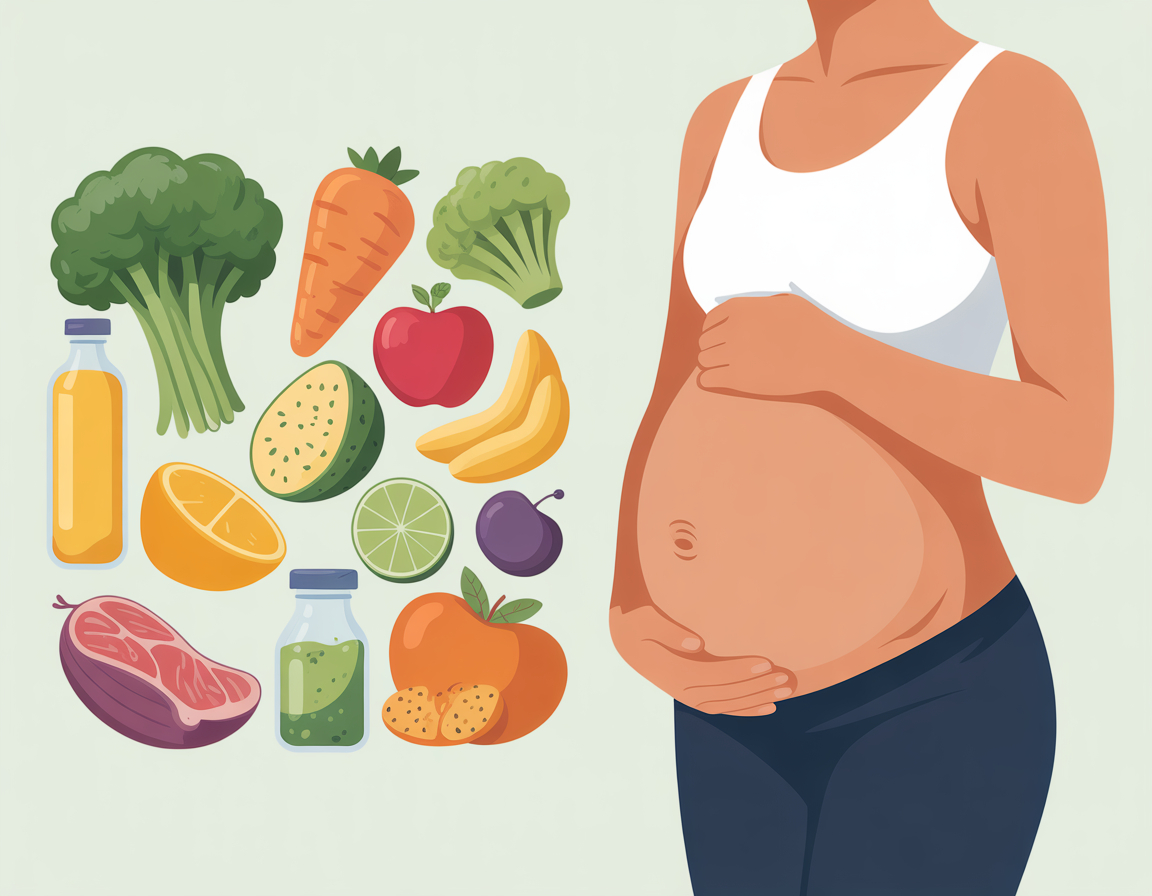Pregnancy Diet: Must-Have Tips for a Healthy Pregnancy
A thoughtful pregnancy diet is vital for nurturing both expectant mothers and their developing babies. Nutrition during this crucial time can influence fetal growth, maternal health, and even the child’s future well-being. Understanding the essentials of prenatal nutrition can lead to a healthier pregnancy and a smoother birthing experience. Here are some essential tips to consider.
The Importance of Prenatal Nutrition
The first trimester is when the baby’s foundation is laid. This makes the right diet more significant than ever. A well-balanced pregnancy diet provides essential vitamins, minerals, and other nutrients crucial for both mother and baby. Adequate nutrition supports not only the baby’s growth but also reduces the risk of pregnancy complications such as gestational diabetes and preeclampsia.
Key Components of a Healthy Pregnancy Diet
1. Focus on Whole Foods
An ideal pregnancy diet emphasizes whole, nutrient-dense foods. Incorporate a variety of fruits and vegetables, whole grains, lean proteins, and healthy fats into your meals. Foods like leafy greens, sweet potatoes, berries, quinoa, and legumes are rich in vitamins and minerals essential for pregnancy.
2. Increase Folate Intake
Folate, or vitamin B9, is crucial for fetal development, especially in the early stages. It helps in preventing neural tube defects. Foods high in folate include dark leafy greens, citrus fruits, beans, and fortified cereals. Women are often advised to begin taking prenatal vitamins that include folic acid before conception and throughout pregnancy to ensure adequate intake.
3. Don’t Forget Protein
Protein is vital for building tissues and supporting overall growth. Aim to include ample sources of lean protein in your pregnancy diet, such as chicken, fish, eggs, and plant-based options like tofu and legumes. Remember to opt for safe seafood choices to avoid high mercury levels, focusing on options like salmon and sardines.
4. Include Healthy Fats
Healthy fats are integral for fetal brain development. Incorporate sources such as avocados, nuts, seeds, and olive oil into your meals. Omega-3 fatty acids, found in fish like salmon and flaxseeds, also promote optimal fetal growth and may even enhance cognitive functions post-birth.
Staying Hydrated
Hydration is a critical yet often overlooked aspect of a healthy pregnancy. Pregnant women require more fluids to support increased blood volume and amniotic fluid production. Aim for at least 8-10 glasses of water daily, and consume hydrating foods like cucumbers, watermelon, and oranges.
Avoid Certain Foods
While focusing on nutrient-dense options, it’s equally crucial to know which foods to limit or avoid. Certain foods can pose risks during pregnancy:
– Raw or undercooked seafood, eggs, and meats: These can harbor harmful bacteria or parasites.
– Certain cheeses: Soft cheeses made from unpasteurized milk can contain listeria, which can harm both mother and baby.
– Caffeine and sugary drinks: High caffeine intake can lead to complications, while excessive sugar can contribute to gestational diabetes.
Meal Planning and Timing
Maintaining a regular eating schedule helps manage nausea and keeps energy levels stabilized. Consider eating smaller, frequent meals instead of three large ones. This can prevent discomfort and ensure you receive enough nutrients throughout the day.
Listen to Your Body’s Cravings
Pregnancy often comes with unique cravings and aversions. While it’s essential to maintain a balanced diet, paying attention to your body can guide your meal choices. If a specific food seems appealing, explore healthier versions. For example, if you’re craving ice cream, try a smoothie made with frozen fruits and yogurt for a nutritious twist!
Consult with a Healthcare Provider
Last but not least, consulting with your healthcare provider can offer personalized advice tailored to your individual needs. A registered dietitian can also help create a meal plan that meets your nutritional requirements while catering to any existing conditions or dietary restrictions.
In Conclusion
A well-planned pregnancy diet can lay the groundwork for a healthy pregnancy and promote the well-being of both mother and baby. By incorporating nutrient-rich foods and avoiding harmful substances, expecting mothers can support fetal development, manage pregnancy symptoms, and prepare for a smooth transition into motherhood. Remember, every pregnancy is unique, so take the time to listen to your body and get the guidance you need to make the best dietary choices for this special journey.


Leave a Reply